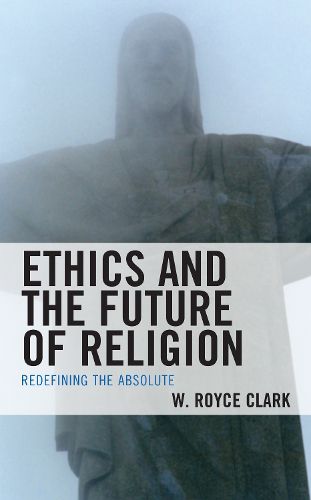Readings Newsletter
Become a Readings Member to make your shopping experience even easier.
Sign in or sign up for free!
You’re not far away from qualifying for FREE standard shipping within Australia
You’ve qualified for FREE standard shipping within Australia
The cart is loading…






Can religions supply an ethics that can unite rather than divide peoples? In ancient times, many people believed in super-human powers spatially beyond them, whether above or below them. They conceived of them in anthropomorphic terms, and developed symbols, rituals, and general ways of life to court their favor because they felt dependent upon these powers for certain essentials of daily living such as warmth, water, or good health. Some deities were believed to have personally intervened in human history, and took a human form to fight their enemies, provided humans with rules for living, or re-created the world after its destruction.
As time passed, these claims became more comprehensive, finally universal, even Absolute, even as the process of questioning the claims, which is called desacralization, became more widespread. Many sensed that if their absolutized deity were dislodged by doubt, the world would flounder without an ethic. Some religions tried to defend their deity by emphasizing that it was really beyond any attributes, beyond human reason. It became the Ineffable, the Incommensurable, even the Wholly-Other. If it was thought to have become Incarnate, that had to be defended in a similar way. In order to solve the problem of the Absolute, W. Royce Clark analyzes the thought of four prominent Christian theologians and philosophers- Friedrich Schleiermacher, G.W.F. Hegel, Paul Tillich, and Robert P. Scharlemann-as the grounds for the basis of a possible universal ethic.
$9.00 standard shipping within Australia
FREE standard shipping within Australia for orders over $100.00
Express & International shipping calculated at checkout
Can religions supply an ethics that can unite rather than divide peoples? In ancient times, many people believed in super-human powers spatially beyond them, whether above or below them. They conceived of them in anthropomorphic terms, and developed symbols, rituals, and general ways of life to court their favor because they felt dependent upon these powers for certain essentials of daily living such as warmth, water, or good health. Some deities were believed to have personally intervened in human history, and took a human form to fight their enemies, provided humans with rules for living, or re-created the world after its destruction.
As time passed, these claims became more comprehensive, finally universal, even Absolute, even as the process of questioning the claims, which is called desacralization, became more widespread. Many sensed that if their absolutized deity were dislodged by doubt, the world would flounder without an ethic. Some religions tried to defend their deity by emphasizing that it was really beyond any attributes, beyond human reason. It became the Ineffable, the Incommensurable, even the Wholly-Other. If it was thought to have become Incarnate, that had to be defended in a similar way. In order to solve the problem of the Absolute, W. Royce Clark analyzes the thought of four prominent Christian theologians and philosophers- Friedrich Schleiermacher, G.W.F. Hegel, Paul Tillich, and Robert P. Scharlemann-as the grounds for the basis of a possible universal ethic.